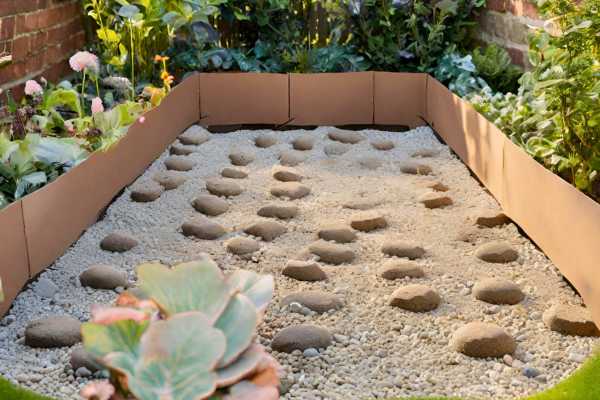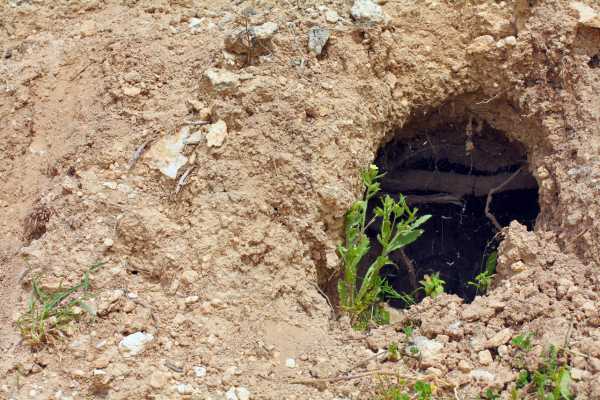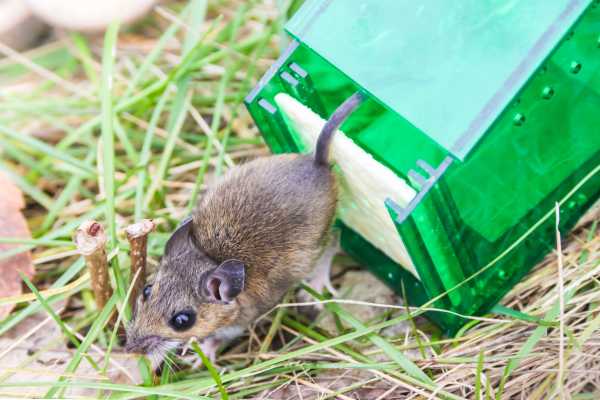Chipmunks may be small And adorable, But their mischievous antics can wreak havoc on your beloved garden. From nibbling on freshly sprouted plants to digging up bulbs And seeds, These furry intruders can turn your lush oasis into A battleground. But fear not, For there are strategies you can employ to outsmart these cunning critters And protect your precious flora. In this article, We will explore effective methods And practical tips on how to keep chipmunks out of your garden once And for all. So grab your gardening gloves And get ready to reclaim the serenity of your outdoor sanctuary!
Chipmunk Damage In Gardens
Chipmunks may be tiny, But their impact on gardens can be significant. These cute And agile creatures are notorious for digging up bulbs, Snacking on seedlings, And stealing vegetables right from the raised garden bed. It seems as though no amount of fencing or deterrents can keep them at bay. Understanding their behavior And implementing specific strategies might help prevent chipmunk damage in your precious garden.
One way to discourage squirrels from wreaking havoc in your garden is to create A barrier around vulnerable plants. This could involve using chicken wire or hardware cloth to cover small areas of the park where seeds are germinating or bulbs have been planted. Another effective method is employing natural repellents such as crushed garlic or predator urine near entry points to deter these critters. Providing alternative food sources away from the main gardening area, Like bird feeders filled with sunflower seeds or corn, Might divert their attention And reduce damage.
What Attracts Chipmunks To Your Garden
One of the main attractions for chipmunks is A bountiful food source. They are particularly drawn to bird feeders, As they love pilfering seeds And corn from easy-to-access locations. The abundance of fruits, Nuts, And vegetables in gardens can also entice squirrels to explore And feast upon their delectable finds.
Another factor that attracts chipmunks to your garden is the presence of shelter And hiding spots. Squirrels are burrowers by nature And seek out places where they can create their underground systems. Densely vegetated areas with trees, Shrubs, And thick foliage provide them with ideal hiding places from predators like cats or birds of prey. Furthermore, Gardens filled with rocks, Woodpiles, Or piles of leaves offer additional opportunities for squirrels to build cozy nests or store their food supplies.
What Will You Need
Keeping chipmunks out of your garden can be quite A challenge, But with the right tools And strategies, You can deter these critters from causing damage.
Here’s A List Of What You’ll Need
- Fencing
- Natural Repellents
- Plant Selection
- Ultrasonic Repellers
- Live Traps
- Predator Urine
- Garden Netting
- Decoys
- Taste Repellents
- Stone Or Gravel
Here Are Some Ways To Keep Chipmunks Out Of Garden
Limit Food Sources

Just as humans are drawn to A sumptuous buffet, Chipmunks are attracted to gardens that offer A variety of edible delights. To deter squirrels from feasting on your plants, Avoid leaving fallen fruits or nuts on the ground. Clean up regularly And consider using plant varieties that are less appetizing to squirrels. Bird feeders, Often an underestimated source of food, Should be strategically placed or modified to prevent seeds from spilling, As they can attract squirrels. Opt for “no waste” birdseed mixes or use baffles to deter chipmunks from climbing up to the feeders.
Eliminate Potential Cover

By reducing these hiding spots, You’ll make your garden less appealing. Keep grass mowed, Prune shrubs regularly, And clear away piles of leaves And debris. If you store firewood, Ensure it’s kept off the ground And away from planting areas.
Wrap Your Trees

Young trees or fruit trees can be particularly vulnerable to chipmunks, Especially when their bark is tender. By wrapping the bases of your trees with metal tree guards or hardware cloth, You not only protect them from squirrels but also from other critters that might harm the tree’s trunk. Ensure the wrapping is buried A couple of inches underground to prevent squirrels from digging beneath it.
Use Gravel To Fill Holes And Create Barriers

Unlike soil or compost, Gravel is hard for chipmunks to dig through. Surrounding garden beds with A gravel barrier can also act as A deterrent. The presence of gravel can discourage squirrels from creating new burrows or revisiting existing ones.
Use An L-Shaped Footer To Prevent Them From Burrowing

Installing an L-shaped footer around the perimeters of your garden beds can deter this behavior. Dig A trench about A foot deep around the area you want to protect, Then lay down A section of hardware cloth or wire mesh, Bending it at A 90-degree angle away from the garden. The horizontal section should extend outwards for about A foot, Creating an “L” shape. Backfill the trench with soil. This configuration acts as A physical barrier, Discouraging chipmunks from burrowing into the garden.
Deterrent Techniques

There are several deterrent techniques you can employ to keep them away. One effective technique is to use predator urine or scents. Chipmunks are naturally wary of predators like foxes And coyotes, So placing the scent or urine of these animals around your garden can deter them from coming near. Another successful approach is to create barriers using materials like chicken wire or mesh fencing.
Use Hardware Cloth And Bird Netting

These materials can be invaluable for protecting your garden. Hardware cloth can be placed around garden beds or specific plants, Acting as A fence to keep chipmunks out. Bird netting, Typically used to protect fruit trees or bushes from birds, Can also deter squirrels from munching on your fruits. The mesh of the netting makes it difficult for squirrels to access the goodies beneath.
Add Scent And Taste Deterrents

Commercially available repellents often use smells or tastes that chipmunks find repugnant. Spraying these deterrents on plants can reduce chipmunk nibbling. Be sure that any deterrent you use is safe for plants And won’t harm the squirrels or other wildlife. Some gardeners have found success using bitter sprays designed to stop pets from chewing on furniture or belongings.
Use Natural Deterrents From Your Pantry
Sprinkling crushed red pepper flakes or powdered garlic around plants can deter chipmunks due to the strong scent And taste. A mixture of water, A few drops of dish soap, And hot sauce can be sprayed around the garden, Acting as A mild repellent. Remember to reapply these natural deterrents after rain or watering, As they can be easily washed away.
Apply Commercial Products
There’s A range of commercial products available specifically designed to deter chipmunks And other garden pests. These products often combine A variety of repellent methods, Including unpleasant tastes And scents that squirrels dislike. When opting for commercial repellents, Always read the label carefully to ensure they are safe for your plants, Pets, And other wildlife. They should be environmentally friendly And not harmful But rather discourage their presence.
Install An Ultrasonic Device: Light And Sound
Ultrasonic devices have gained popularity in recent years for pest control in gardens. These gadgets emit high-frequency sound waves, Imperceptible to human ears, That can deter chipmunks And other rodents. Some devices also include flashing lights, Adding an additional deterrent. Ensure the device is specifically designed for outdoor use, And place them in areas of high chipmunk activity. Keep in mind that the efficacy of ultrasonic devices can vary, And they may not be A complete solution on their own but can be effective when combined with other methods.
Encourage Predators
One of nature’s most effective methods of pest control is the presence of predators. Birds of prey, Such as hawks or owls, As well as animals like foxes or cats, Can significantly reduce chipmunk populations. Consider installing owl boxes or raptor perches in your yard to attract these birds. While it’s not about causing harm to the chipmunks, The mere presence of these predators can be enough to deter them from frequenting your garden.
Install Motion-Activated Deterrents
Technology has provided gardeners with motion-activated sprinklers And lights that can startle And deter chipmunks And other pests. These devices, When triggered by movement, Release A sudden burst of water or flash A bright light, Which can scare away any intruding chipmunk. Not only are they practical, But they also provide A humane method of deterring these creatures without causing them harm.
Trap And Release

Live trapping is A humane way to manage the chipmunk population without resorting to lethal methods. Bait the trap with foods that are appealing to squirrels, Such as sunflower seeds, Peanut butter, Or cereal grains. Once captured, Release the chipmunks several miles away from your property in A wooded or wild area where they can find food And shelter. When handling traps, Wear gloves And ensure you’re gentle to avoid causing unnecessary stress to the animals.
When To Call A Professional
Despite the best DIY efforts, There are times when the chipmunk infestation becomes too overwhelming or persistent. If you’ve tried multiple methods without success or noticed extensive damage to your garden, Property, Or home foundation, It might be time to seek help from A professional pest control service. Professionals have the experience, Tools, And knowledge to address the issue effectively And humanely. They can also provide advice on long-term prevention strategies And assess the extent of the infestation. Before hiring A professional, Ensure they use humane methods And practices that are safe for the environment.
Final Thoughts
Keep chipmunks out of your garden is A task that requires both persistence And creativity. By implementing A combination of physical barriers, Repellents, And diversion tactics, You can significantly reduce the likelihood of squirrels invading your precious plants. Regular monitoring And maintenance will also play A crucial role in ensuring long-term success. Remember to stay proactive And adapt your strategies as needed. With diligence And determination, You can create A garden that is free from chipmunk damage And thriving with lush vegetation. Start implementing these techniques today to protect your hard work And enjoy the beauty of your garden without any unwanted visitors!
